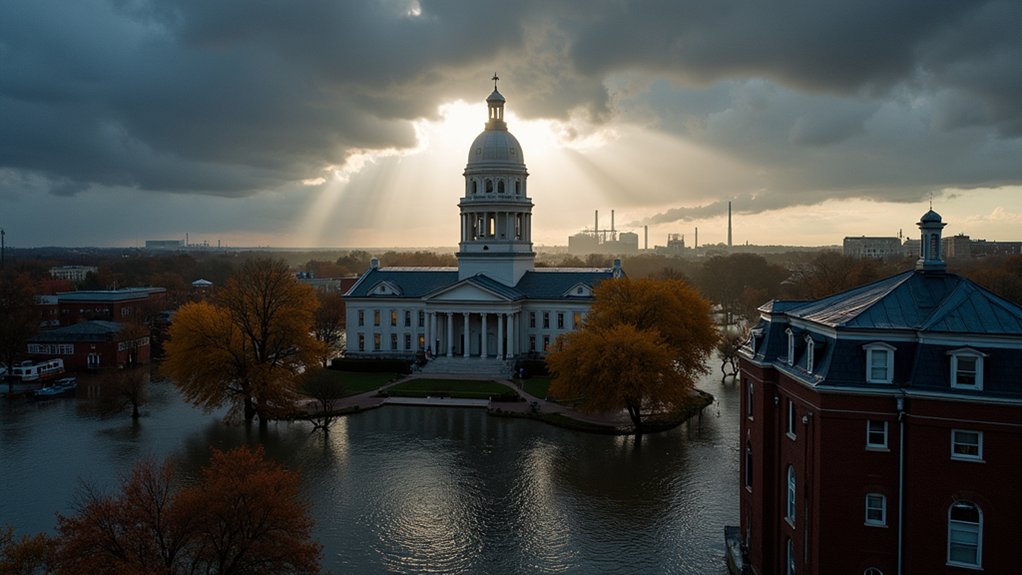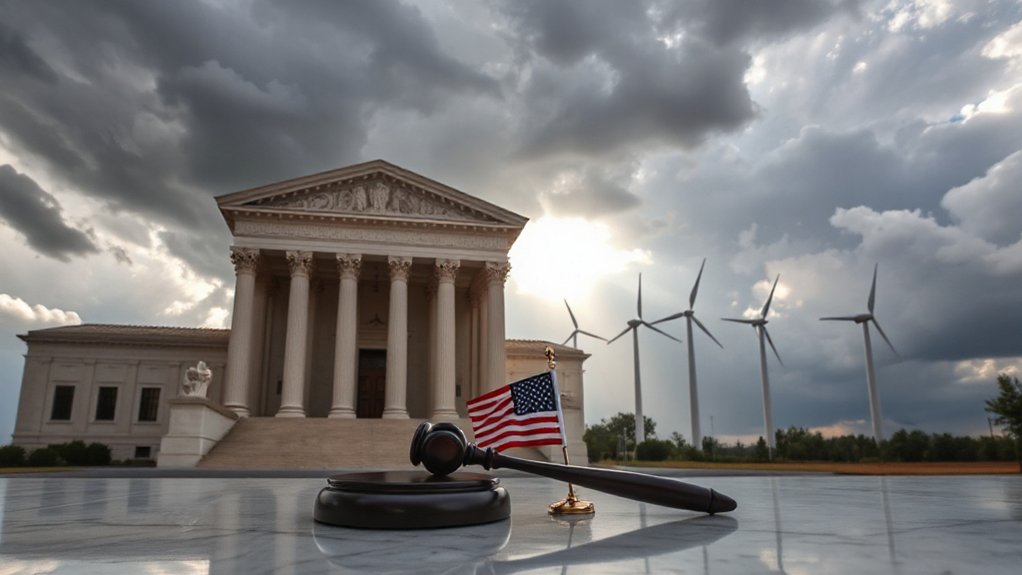How long can a lawsuit drag on before someone actually makes a decision? Maryland’s climate change lawsuits have been bouncing around courts like a pinball for seven years. Now the state’s highest court will finally weigh in.
The Maryland Supreme Court grabbed the hot potato in April 2025, agreeing to review three climate lawsuits from Baltimore City, Annapolis, and Anne Arundel County. All three want fossil fuel companies to pay up for climate damage. All three got tossed out by lower courts. The consolidated case has a name longer than most grocery lists: “Mayor and City Council of Baltimore v. B.P. P.L.C., et al.; Anne Arundel County v. B.P. P.L.C., et al.; City of Annapolis v. B.P. P.L.C., et al.”
Anne Arundel County Circuit Court dismissed the climate lawsuits on January 23, 2025. Federal preemption, they said. Baltimore’s lawsuit got the boot six months earlier in July 2024. Same story, different judge. The cities claimed the companies engaged in coordinated efforts to discredit climate change information.
The lower court wasn’t subtle about it. The claims were preempted “possibly by federal common law but surely by the Federal Clean Air Act.” They cited the Supreme Court’s 2011 American Electric Power decision. Case closed, they thought.
Not so fast. The cities and county aren’t giving up. They’re targeting over two dozen fossil fuel companies, including BP P.L.C., with claims under Maryland common law and the state’s Consumer Protection Act. They want money for climate damages. They say the companies should’ve warned people about climate impacts.
The legal questions are thorny. Can federal law block these state claims? Does Maryland law even allow nuisance claims based on worldwide fossil fuel production? What about trespass claims for global climate changes? Pennsylvania state courts recently dismissed similar claims based on Clean Air Act preemption, while Colorado’s Supreme Court went the other way.
Oral arguments are set for October 2025. That’s another year of waiting for everyone involved. Meanwhile, similar climate lawsuits are getting dismissed across the country. The SEC’s climate disclosure rule sits in limbo, stayed by the Eighth Circuit.
Maryland’s decision could set the tone nationally. Local governments everywhere are watching, hoping courts will make fossil fuel companies pay for climate costs. Seven years and counting. With fossil fuels accounting for 65% of emissions globally, the stakes in these lawsuits extend far beyond Maryland’s borders.
References
- https://www.mintz.com/insights-center/viewpoints/2151/2025-05-30-sustainable-energy-infrastructure-litigation-updates
- https://climatecasechart.com/case/city-of-annapolis-v-bp-plc/
- https://mdappblog.com/2025/04/25/april-2025-maryland-certiorari-grants-include-climate-change-litigation/
- https://www.jonesday.com/en/insights/2025/03/climate-change-suits-against-energy-companies-tossed-by-us-state-courts
- https://thedailyrecord.com/2025/04/29/maryland-supreme-court-climate-tax-case/





